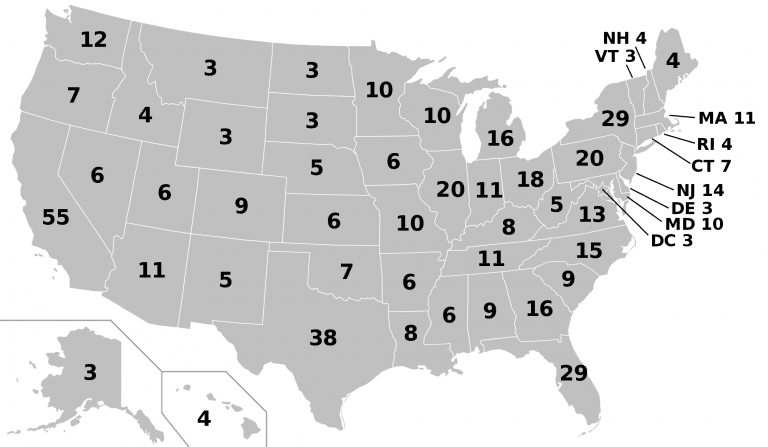Eight states will have just under half of the total population of the country, 49.5 percent, according to the Weldon Cooper Center’s estimate. The next eight most populous states will account for an additional fifth of the population, up to 69.2 percent — meaning that the 16 most populous states will be home to about 70 percent of Americans.
Geographically, most of those 16 states will be on or near the East Coast. Only three — Arizona, Texas and Colorado — will be west of the Mississippi and not on the West Coast.
Those eight states are New York, Pennsylvania, North Carolina, Georgia, Florida, Illinois, Texas, and California. But, of these, five voted for Donald Trump (the only exceptions being New York, Illinois, and California).
Though it may be true that the minority states will be more rural, whiter, and older, it isn’t clear what party will have the advantage with these demographics, as the article admits. Mr. Bump also points out that the older demographic in 2040 will be aging Millennials, and there is no telling how they will vote.
But the point is, our constitutional system of state representation will mean that a minority of Americans will control the Senate and very likely the electoral college. Which throws off the principle of majority rule in a democratic process.
What should we make of this? Can you think of any reforms that might address this problem?
Or should we just see this as the cost of having a federal system?
Illustration, Electoral College, Original: Cg-realmsDerivative work: Ali Zifan (USCB) [Public domain or Public domain], via Wikimedia Commons











